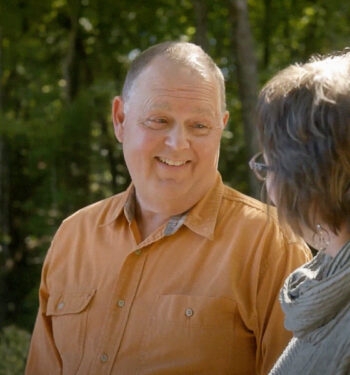March 12, 2019
Because the effects aren’t always obvious, you may not realize how many people deal with life-altering brain injuries. Traumatic brain injury (TBI)—a trauma to the brain caused by an external force—is the most common form of acquired brain injury. One in 60 people in the U.S. lives with a TBI-related disability. Each March, organizations like ours who care for people with brain and spine injuries devote attention to supporting and destigmatizing those who deal with these conditions and their challenges.
Goodman Campbell treats nearly 1,000 TBI patients each year, and hundreds more through Riley Children’s Health. And each September, we hold our Brain Bolt 5K to increase awareness of traumatic brain and spine injuries and raise funding for the care and treatment of those who live with them. We also take the time to celebrate those—like our patients Paul Peaper and Ryan Bardellini—who have come so far in their recovery. (You can see more of Paul’s and Ryan’s stories here.)
Prevent TBIs by protecting yourself and others.
There’s much we can do to help treat and care for those with TBI, but we also want to prevent these injuries if we possibly can. Falls cause a full 40 percent of TBI, so understanding whether you or your loved ones may be at risk of falls—and knowing how to prevent them—is an easy way to help. Other simple measures you can take to keep yourself and your loved ones safe include wearing a seatbelt, never driving while intoxicated, and always wearing a helmet (and making sure children do, too) when on bicycles, motorcycles, or scooters—and while playing contact sports.
Know the signs of TBI and other brain and spine injuries.
Another way you can help prevent serious damage—or even death—from brain and spine injuries is to know the signs and understand the importance of early medical attention.
The signs of even mild TBI warrant seeing a doctor—as the effects of seemingly mild injury may appear days or even weeks later. These injuries still require prompt professional evaluation and an accurate diagnosis.
If you or a loved one suffer a head injury that results in losing consciousness, seek immediate medical attention. Loss of consciousness is a sign that a serious injury has taken place, and it shouldn’t be ignored. If someone seems to have trouble thinking, moving, or controlling part of their body, or if they have persistent headaches or just can’t seem to shake the lingering effects of a head injury, it’s important to seek help.
And call 911 rather than driving a loved one—or most certainly yourself—to the hospital. Don’t risk further trauma from moving the injured person or take a chance on getting into another accident.
Support the care and treatment of patients with TBI and other neurological conditions.
The neurosurgeons of Goodman Campbell are among the top brain and spine experts in the country, but we’re always working to learn more, understand more, and do more to help the patients who come to us for brain and spine care. Find out more about how we help patients who deal with injuries to the brain, spine, and nerves—and how we’re advancing research and techniques in brain, spine, and nerve care.



